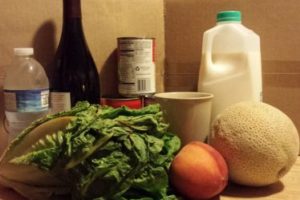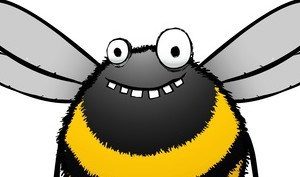university of california riverside
Swarms of bees could unlock secrets to human brains
Scientists at the University of Sheffield believe decision making mechanisms in the human brain could mirror how swarms of bees choose new nest sites.
Striking similarities have been found in decision making systems between humans and insects in the p…
Decisions, decisions: House-hunting honey bees work like complex brains
House-hunting is full of decisions, for us and honey bees. One early decision we both face is where to live. P. Kirk Visscher at the University of California, Riverside, often in collaboration with Thomas Seeley at Cornell Univ…
Flood-tolerant rice plants can also survive drought, say UC Riverside scientists
RIVERSIDE, Calif. — Rice, which is sensitive to drought due to its high water requirement, is particularly vulnerable to how global climate change is altering the frequency and magnitude of floods and droughts. If rice plants’ combined tole…
Geologists get unique and unexpected opportunity to study magma
RIVERSIDE, Calif. — Geologists drilling an exploratory geothermal well in 2009 in the Krafla volcano in Iceland encountered a problem they were simply unprepared for: magma (molten rock or lava underground) which flowed unexpectedly into the wel…
Research helps drivers cut fuel use
RIVERSIDE, Calif. (www.ucr.edu) — Ever wonder how much fuel you can save by avoiding stop-and-go traffic, closing your window, not using air conditioning or coasting toward stops?
Research at the University of California, Riverside’s College of E…
Astronomers identify most distant galaxy cluster
RIVERSIDE, Calif. — Bahram Mobasher, a professor of physics and astronomy at the University of California, Riverside, is a member of an international team of astronomers that has uncovered a burgeoning galactic metropolis, the most distant know…
Widespread ancient ocean ‘dead zones’ challenged early life
The oceans became oxygen-rich as they are today about 600 million years ago, during Earth’s Late Ediacaran Period. Before that, most scientists believed until recently, the ancient oceans were relatively oxygen-poor for the preceding four billio…
UCR scientists identify pomegranate juice components that could stop cancer from spreading
RIVERSIDE, Calif. — Researchers at the University of California, Riverside have identified components in pomegranate juice that both inhibit the movement of cancer cells and weaken their attraction to a chemical signal that promotes the metast…
Electronic cigarettes are unsafe and pose health risks, UC Riverside study finds
RIVERSIDE, Calif. — Electronic cigarettes (or e-cigarettes), also called “electronic nicotine delivery systems,” are increasingly used worldwide even though only sparse information is available on their health effects. In the United States, e-…
Discovery by UC Riverside entomologists could shrink dengue-spreading mosquito population
RIVERSIDE, Calif. — Each year, dengue fever infects as many as 100 million people while yellow fever is responsible for about 30,000 deaths worldwide. Both diseases are spread by infected female Aedes aegypti mosquitoes, which require vertebrat…
Perceptual training improves vision of the elderly
RIVERSIDE, Calif. — Elderly adults can improve their vision with perceptual training, according to a study from the University of California, Riverside and Boston University that has implications for the health and mobility of senior citizens.
T…


